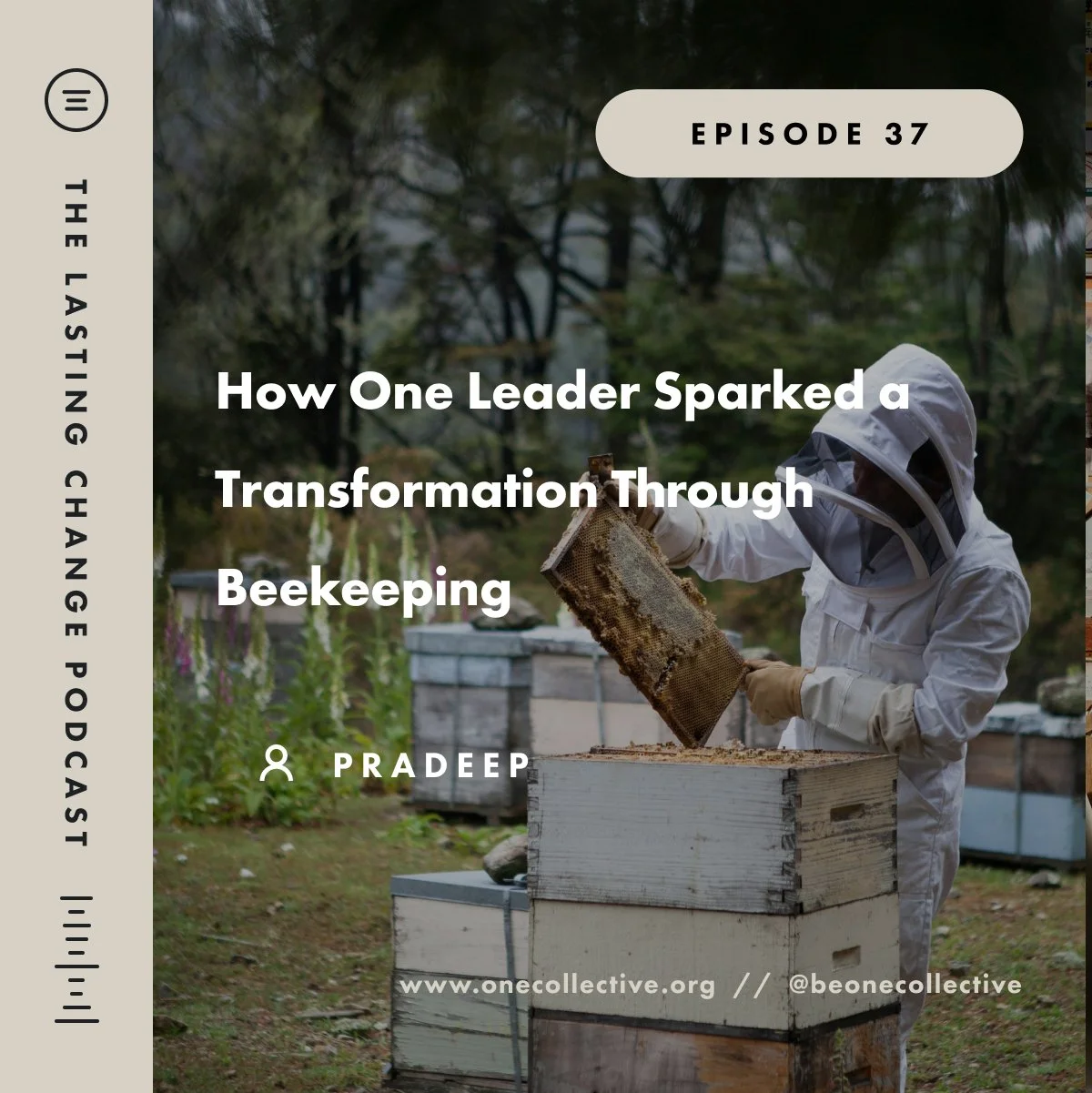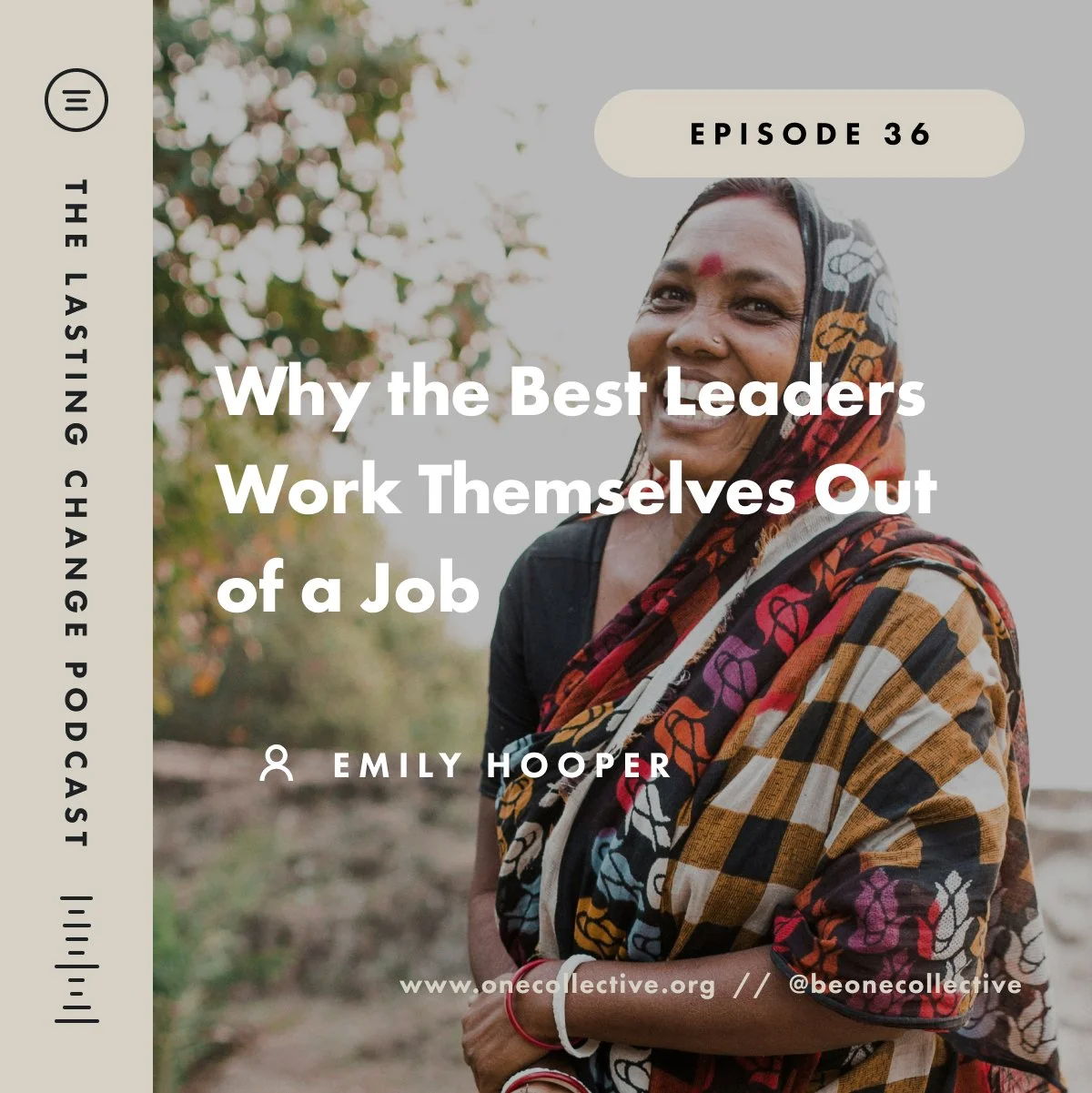#2 Why Hearing Scripture Matters - Dr. Brent Sandy
Episode 2 | 41 Minutes | Nov 12, 2024
Have you ever wondered if you’re missing something when you read the Bible? In today’s fast-paced world, many of us rely on written texts for spiritual guidance, but what if there’s a richer, deeper way to engage with scripture?
In this episode of the Innovate for Good Podcast, we’re talking with Dr. D. Brent Sandy, a professor and author who believes hearing scripture orally can be transformative. Dr. Sandy explains the importance of returning to the ancient practice of oral communication and reveals what we may miss if we only read the Bible. Whether you’re a pastor, a student, or someone looking to deepen your faith, this conversation uncovers fresh strategies for engaging with scripture in powerful, innovative ways.
In this Episode:
• How oral scripture can deepen your spiritual engagement
• What we miss when we only read the Bible
• Why oral traditions bring scripture to life in powerful new ways
• The cultural and historical significance of hearing scripture
• Practical strategies for incorporating oral scripture in daily practice
• How oral scripture can transform church services and personal study
• The role of emotional content in understanding biblical texts
-
Dr. D. Brent Sandy is a professor, author, and biblical scholar with decades of experience teaching Greek and Bible at institutions like Grace College and Wheaton College. He has authored seven books and is widely respected for his expertise in the cultural and historical contexts of scripture. Dr. Sandy’s work emphasizes the power of oral traditions in biblical interpretation, and he is passionate about helping people engage with the Bible in fresh, transformative ways. His latest book, Hear Ye the Word of the Lord: What We Miss If We Only Read the Bible, explores the significance of hearing scripture and its impact on personal and communal faith.
-
Carly Fortosis: Welcome back to the Innovate for Good podcast with One Collective. This is a podcast where we chat with people who are making a difference in their fields. My name is Carly Fortosis, and I’m here with my coworker and fellow One Collective Serving Coach, Mark Fasshager. Today we have a pretty special guest joining us—actually, a friend and contact of one of our own field leaders with One Collective. We’re joined by Dr. D. Brent Sandy. Brent has taught Greek and Bible as a professor at both Grace College and Wheaton College over the years, and he’s authored seven books. We’re thrilled that you could make the time to chat with us today, so thank you, Brent.
Dr. D. Brent Sandy: This is fantastic. I’m glad for the opportunity.
Carly Fortosis: Awesome. Well, welcome!
Mark Fasshager: Great to have you with us! We’d love to hear a bit about your background.
Dr. D. Brent Sandy: Okay. I’ll start back when I was 10 years old. That’s when a major change occurred in my life and the life of my family. I was fortunate to be raised in a Christian family. My father had an excavating and grading business—bulldozers, dump trucks, backhoes, that kind of stuff. He was one to push me to do things I didn’t think I was quite ready for, like even driving his bulldozers sometimes. But when I was 10, my father was 36, and he sold the business. He decided he wanted to go to a Christian college, go to seminary, and become a pastor. So, we left Pennsylvania where we lived and moved out here to Indiana to go to Grace College. That was such an impact on me, leaving behind a big brick home and moving into a cement block house that we built ourselves—really scraping by with little income. So, I started college and seminary at Grace College at 36. Greek was my first class. About the same time, ministry emphasized something called full-time Christian service. Seeing what my father was up to, being challenged by the Holy Spirit, I decided to go into full-time Christian service as well. This led me to become a primarily Christian teacher, though I did serve as a pastor for seven years.
Mark Fasshager: Wow, that’s incredible. Where were you a pastor?
Dr. D. Brent Sandy: In Roanoke, Virginia. I also taught at some other places in addition to Grace and Wheaton. I was an adjunct professor at a college in Roanoke while I was pastoring there, which was kind of between some of my teaching opportunities.
Carly Fortosis: That’s great. So, you clearly have this passion for helping people understand the Bible. What moved you in that direction? Was there something that triggered that passion?
Dr. D. Brent Sandy: That’s a good question. I’m not totally sure, but part of it was seeing people misinterpret scripture. That really troubled me. We don’t want to get God’s word wrong. I decided to major in Greek in college, and over time, I realized that I knew the words in the Bible, especially in the New Testament, but didn’t know much about the culture. The culture really helps tell us what the words mean. So, I saw a lack in that area, and it’s been my emphasis ever since—how to understand scripture in light of its original culture.
Mark Fasshager: That makes a lot of sense. So, in your most recent book, Hear Ye the Word of the Lord, you focus on the importance of hearing scripture orally rather than just reading it. Can you tell us more about that?
Dr. D. Brent Sandy: Yes, so I’m very interested in cultural backgrounds. We often push our modern culture onto scripture rather than letting the culture of scripture shape our understanding. It’s easy to do that, but people in ancient times didn’t have the option of reading scripture. They heard it. They experienced it as a dramatic performance, not just words on a page. So, when Paul told Timothy to devote himself to the public reading of scripture, I believe he meant it to be dynamic, dramatic, and powerful. Today, in many churches, we just read the Bible without much thought or preparation, and it doesn’t have the same impact. We need to let God’s word speak powerfully in our lives, and one way to do that is through hearing it presented effectively.
Mark Fasshager: I love that idea. I’ve never really thought of it that way.
Dr. D. Brent Sandy: It’s definitely something I feel needs more attention. I’m trying to make this accessible to ordinary people, not just scholars. Scholars have been noting how oral scripture was, but it’s not filtering down into churches in a meaningful way. So, I wanted to write a book that could impact regular believers and help them understand the power of oral scripture.
Carly Fortosis: That’s fascinating! In your book, you mention how oral communication can actually bring scripture to life in a way that reading alone doesn’t. Can you expand on that?
Dr. D. Brent Sandy: Yes, oral communication brings out the emotional content of scripture. When we read scripture, we focus on words on a page. But when we hear it, we can be impacted by tone, rhythm, and emotion. The spoken word has power, and when we engage with it in a more dynamic way, it becomes more alive and relevant. For example, when I present scripture to a group, I encourage them to think about how to present it so it speaks powerfully to a congregation. It’s a transformative process because they meditate on the passage and figure out how to emphasize its key points and emotions.
Mark Fasshager: That sounds amazing. It reminds me of discovery Bible studies, where people retell and reflect on scripture in a group. It’s not just about reading; it’s about interacting with the text in a way that makes it meaningful and personal.
Dr. D. Brent Sandy: Exactly! That’s why oral scripture telling is so powerful. It’s not just about passing on information—it’s about making scripture come alive in a way that speaks to people’s hearts and minds. This can really change how people experience and understand the Bible.
Carly Fortosis: Where can people learn more about this topic or read your book?
Dr. D. Brent Sandy: Hear Ye the Word of the Lord is available wherever books are sold. I also recommend The Return of Oral Hermeneutics by Tom Stefan, which dives into the concept of interpreting the Bible orally. And there’s Devote Yourself to Public Reading of Scripture, which is especially helpful for churches.
Mark Fasshager: Great recommendations. Thank you so much for sharing your insights with us today, Brent.
Carly Fortosis: Yes, thank you! It’s been such a fascinating conversation, and we appreciate the time you’ve given us.
Dr. D. Brent Sandy: Thank you both! It’s been a pleasure.
Carly Fortosis: And to our listeners, don’t forget to check out Brent’s book, Hear Ye the Word of the Lord, and explore how oral scripture can deepen your spiritual engagement. Thanks for tuning in to the Innovate for Good podcast with One Collective.
-




